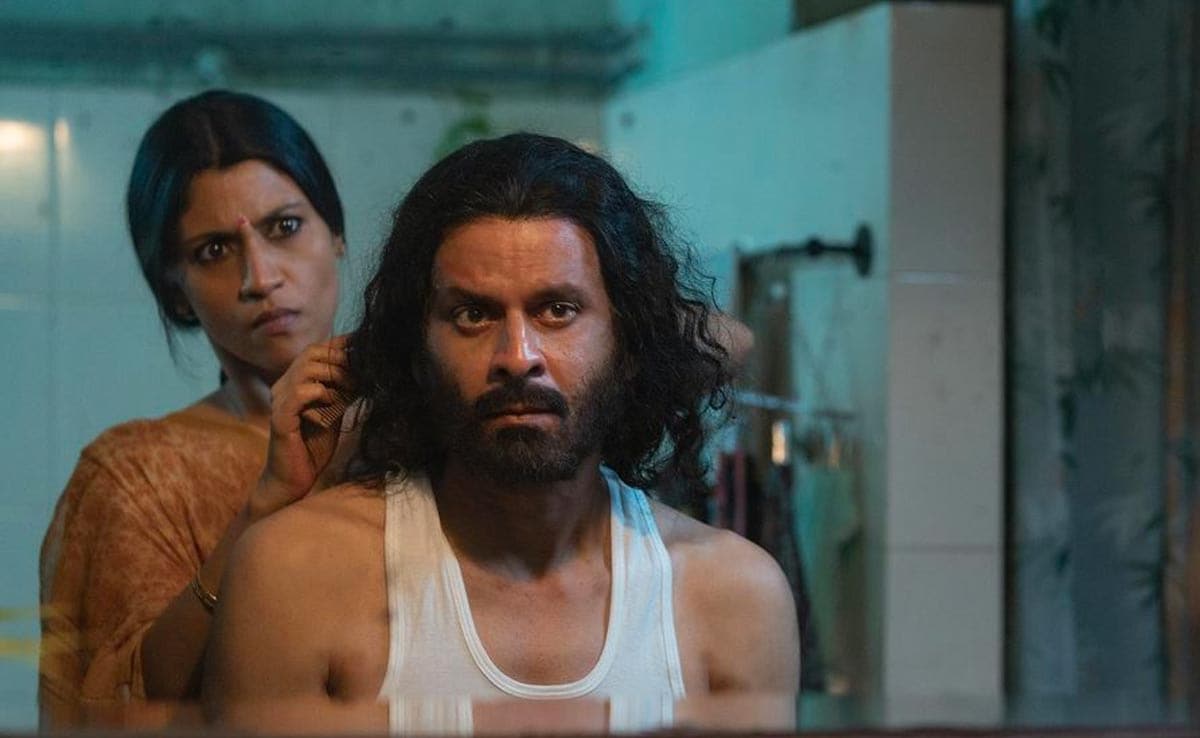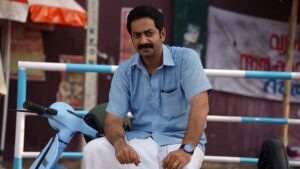Kankana Sen Sharma, Manoj Bajpayee strike a great duet in deadly broth

A recently deceased person’s phone rings. The caller is another dead person. That aptly signals the end of the opening episode Killer soupA deliciously off-the-wall crime series produced and directed by Abhishek Chaubey. The owners of the phones died but the faulty connection persisted and affected the eight-episode Netflix series. Eccentricity is par for the course here. As more people die, each life lost casts a shadow, literally and figuratively, on those who live.
A Latin sign outside a mortuary in a fictional Tamil Nadu hill town Killer soup Set to the text “Mortui Vivos Docent” (“The Dead Teach the Living”). The living learn a little in this neck of the woods. They frantically try – and fail – to shake off the burden of the departed.
Killer soupA smartly crafted crime and investigation caper marked by whip-smart writing and unstoppable acting, quirky, sly and highly entertaining. One of its two main characters is Swathi Shetty (Konkana Sen Sharma), an unqualified cook who hopes to start a restaurant of her own.
Her self-absorbed husband, Prabhakar ‘Prabhu’ Shetty (Manoj Vajpayee), promises to help her but is more interested in digging himself out of a hole after thwarting several business projects. Their marriage is a recipe for disaster.
Prabhu’s scruffy elder brother Arvind Shetty (Sayaji Shinde), oscillates between brotherly affection and corrosive sincerity. He misses no opportunity to tick off the Lord for his misdeeds. Prabhu brazenly leeches his elder brother. Of the latter, too, skeletons abound in closets.
Swathi, unhappy with what she has as much as she lacks, has an affair with a masseuse, Umesh Pillai (Vajpayee in a dual role), who serves the Shetty brothers and knows a lot about their shady business practices.
When the cover is blown on their contact, Swati and Umesh panic. A string of unpleasant moves land them in a soup. A sudden death, a pell-mell cover-up and a strange facial reconstruction later, assume their lies, betrayals and deceit to almost childish proportions.
Chaubey, along with co-writer and producer Anaija Merchant, Ananth Tripathi and Harshad Nalawad, create a gripping, darkly comic crime drama that knows exactly where it’s going but manages to keep the audience on tenterhooks.
Like Chaubey’s films, the series is rooted in a defined, immersive, authentic space. But the soundtrack is a medley of spoken language and dialect with different accents. Linguistic peculiarities and range of cadences significantly enrich the show.
Tamil, Malayalam and Southern Hindi and English liberally punctuate the vocabulary that spans the series. Add to that mix Robert Frost’s “The woods are lovely, dark and deep” and Macbeth’s soliloquy “Life’s but a walking shadow”, Scribe’s I Love You, Pav Bhaji and Nina Simone’s “Sinnerman” and AR Rahman’s Tu Hi Re Tere Bina Men Case. . Jyu (from Mani Ratnam’s Bombay) and you have the most diverse Indian web show ever.
Anuj Rakesh Dhawan’s camera captures the real physical dimension of the exotic world. The road snakes around the green valley. The rolling hills push to pierce the clouds. But beneath the city’s sleepy surface, forbidden desires, thwarted ambitions, blackmail and unholy collusion brew a deadly broth.
With her patience and options running out, Swathi takes desperate measures. Umesh is dragged along, sometimes kicking and crying, while others grumble but give in. Their lives, relationships and business are a “bloody” mess. Killer soup men and women are like soup trotters. The more they try to move, the worse it gets.
Swati is not the only woman striving for a house of her own Killer soup. Arvind’s only daughter, Anita ‘Apu’ Shetty (Anula Navlekar), wants to be an artist. He earned a call-up from a prestigious Paris art school. But her father mocks her for the nudes she paints. He insisted that he would be better off taking over the family business.
Kirtima (Kani Kusruti), an accountant at Prabhu’s firm and a Kalari exponent, has more ambition than the custard tart she makes to show off Swathi’s paya soup, which lacks a secret ingredient that Khansama Mehrunisa (in a cameo by Vaishali Bishta) loathes Swati to part with. And could the rivalry between feats be greater? There is nothing that is not in the oven Killer soup Discounts are made.
Killer soup A police procedural, too. Inspector Haasan (Nasar), weeks away from retirement, is in no rush to delve into Swati’s claim that her husband was attacked with acid. He’s not exactly a pushover cop, nor is he a cynical pro. As he tells a junior, “We don’t get paid to think.”
But Thupalli (Anbuthasan), a cunning cop, is a determined man. Mixing policing with poetry, he is at the center of several surreal encounters with Inspector Hasan as the latter searches for clues hidden in the verses.
Chaubey counts his first web show as something beyond the merely generic. The terrain he explores Killer soup The dusty subcountry is far removed from the location Ishqiya And Sonchiria. Geographic Shift delivers a captivating show that alternates between slow-burn and breakneck without the slightest jolt of its tonal harmony.
Killer soup Its neo-noir principles are steadfastly adhered to, but the flawed characters that make up the narrative are not evil in the conventional sense. They are crooked and self-serving at worst. Significantly, none of the killings that occur are premeditated.
Vajpayee and Sen Sharma took a different role from what they had done before. They make a wonderful duet, challenging and one-upping each other in a game of cat-and-mouse where predator and prey often swap places and co-conspirators often work at cross-purposes.
Apart from Nassar as the avuncular inspector, Lal plays Appur’s uncle and an Arvind Shetty associate who pulls his punches and steals many scenes in Sayaji Shinde. Kani Kusruti delivers an exceptionally effortless performance. Anula Navlekar is no less remarkable as a woman trapped in the pit of hell.
The background score by Benedict Taylor and Naren Chandvarkar is a lovely smorgasbord of sounds. They flow through the ceremony like the ripples of water down a stream constantly changing its speed and rhythm in tune with the wind and rain.
As the show ends, Sen Sharma’s character asks: “Kasa laga sabko mera soup (How do you all like my soup)?” The unequivocal answer: We love it.



